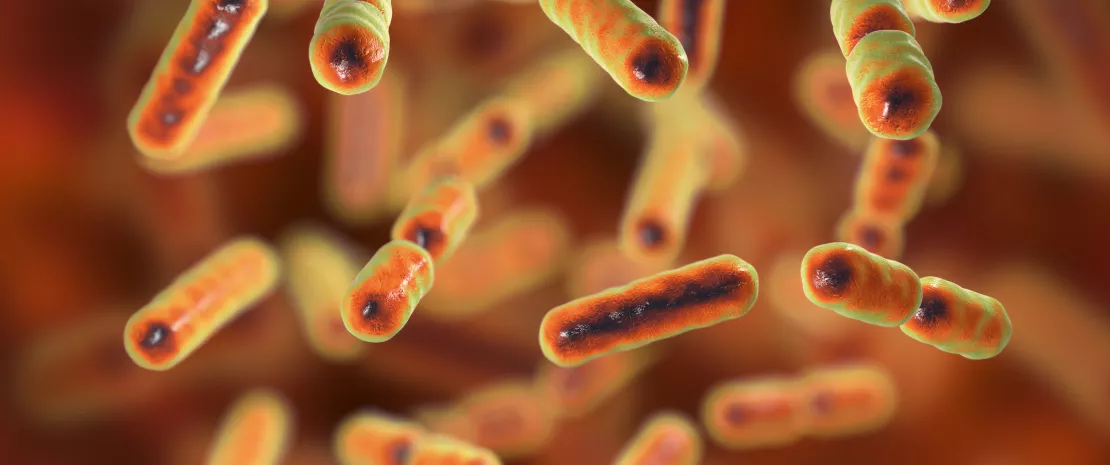The mediterranean diet, gut microbiota and noncommunicable diseases
Press review
By Pr. Markku Voutilainen
Turku University Faculty of Medicine; Turku University Hospital, Department of Gastroenterology, Turku, Finland
Lay public section
Find here your dedicated section
Sources
This article is based on scientific information
Sections

Computer illustration of Bacteroides sp. bacteria. These are rod shaped, obligate anaerobic, Gram-negative, saccharolytic bacteria.
About this article
Author
Mediterranean diet is characterized by high intake of vegetables, fruits, legumes, nuts, seeds, wholegrain cereals, moderate consumption of fish, and low intake of saturated fat, meat and dairy products with not more than moderate consumption of alcohol – in the first instance red wine. The diet of some people living in the Nordic countries resembles Mediterranean diet. People consuming Mediterranean diet have lower morbidity and mortality for cardiovascular diseases, and the diet has preventive and therapeutic effect on metabolic syndrome, obesity, type 2 diabetes, inflammatory diseases and some cancers.
Human gut is colonized by over thousand microbial species (bacteria, viruses, archaea, unicellular eukaryotic species) that contain over three million different genes (the human genome contains 23 000 genes). Microbiota ferments non-digestible dietary fibers and endogenous intestinal mucus which promotes the growth of microbes producing short-chain fatty acids (butyrate, propionate, acetate).
Dysbiosis is linked to localized inflammation of the gut mucosa, deterioration of gut physiology and metabolic disorders. Dysbiosis associates with many gastrointestinal and extraintestinal diseases. There is, however, significant interpersonal variation of the microbiota between persons with same disease and the microbial population is highly variable between different diseases.
Animal studies have shown that diet has a strong effect on gut microbiome. Mediterranean diet contains complex carbohydrates which are fermented by healthy microbiota producing short chain fatty acids. Mediterranean diet has beneficial effects on microbiota and its metabolomic profile. Increased gut microbiota diversity has also been reported even after moderate intake of red wine. Mediterranean diet increases the abundance of Bacteroides and decreases Firmicutes. In persons with increased adherence to Mediterranean diet, the concentration of fecal butyrate and propionate is higher. A high Bifidobacteria/ Escherichia coli ratio associates with good gut equilibrium and health is detected in persons adhering to the Mediterranean diet. This diet also increases levels of Faecalibacterium prausnitzii and certain clostridial species, and capacity of gut microbiota to metabolize food polyphenols.
Mediterranean diet has been suggested for the treatment of patients with metabolic diseases (type 2 diabetes, obesity, non-alcoholic fatty liver disease), because it may reverse dysbiosis and metabolomic profile disturbances often detected in these patients[2]. However, more data are needed on the fluctuation and temporal patterns of gut microbiota in relation to the Mediterranean diet. We need also better understanding of the mechanisms by which diet modifies microbiota and how dysbiosis is involved in the pathogenesis of non-communicable diseases.







